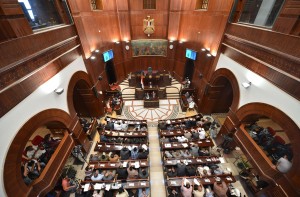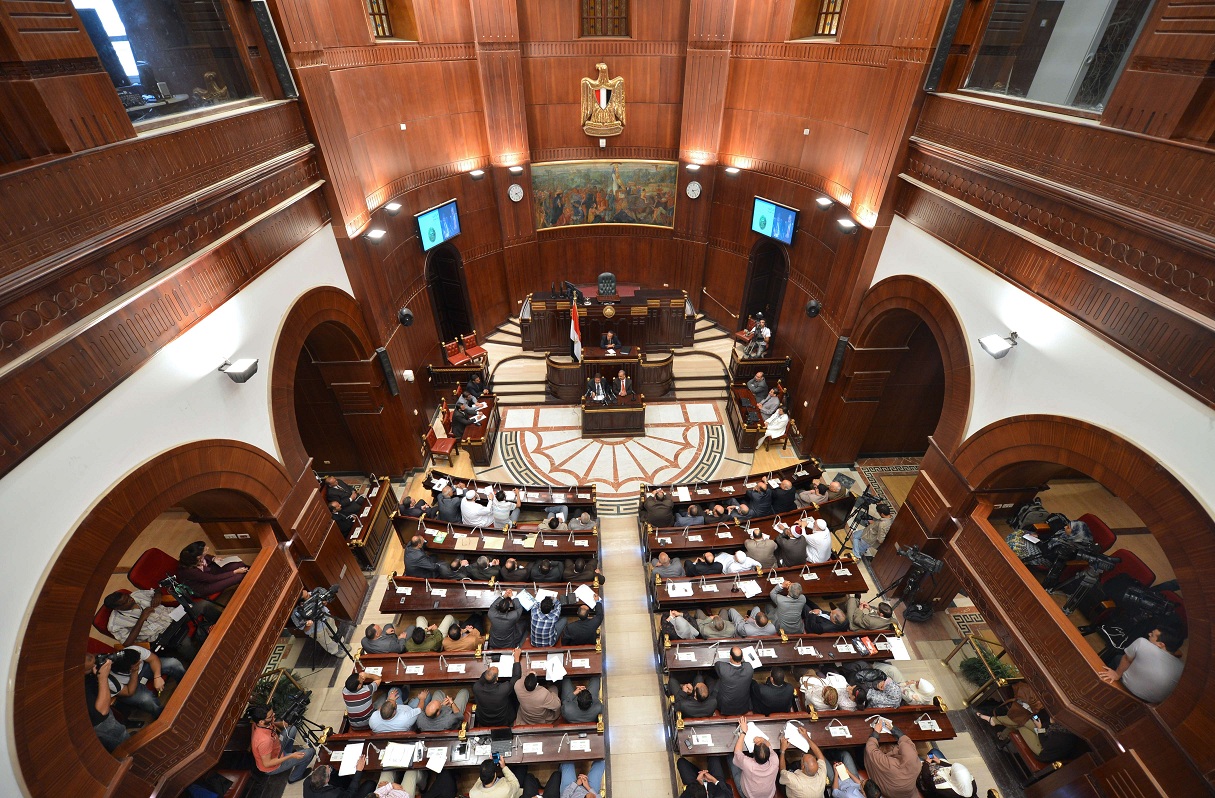
(File Photo)
AFP PHOTO / KHALED DESOUKI
The Ministry of Finance held a press conference, Sunday, to explain the technical details pertaining to the new Sukuk draft law discussed by the Shura council.
The conference was attended by Al-Morsi Hegazy, the finance minister, Ahmed El-Najjar the minister’s advisor for Sukuk, Hamdy Samir, the newly appointed head of the debts management unit at the ministry, Atter Hanoura the head of public private partnership (PPP) unit, and Abdalla Shehatta, the head of economic committee at the Freedom and Justice Party (FJP).
“This is the latest project law to be edited by the cabinet, the ministry of finance will be present at the hearings held by the Shura council,” said Al-Morsi Hegazy, beginning the press conference. “The head of the economic committee at the council has promised to take all the remarks into consideration.”
“This is a new financial window and not an alternative to the existing finance methods,” he continued. “It can help building inventories for petroleum materials or wheat, which allow saving money by buying larger quantities, or buying when the price is low.”
Hegazy welcomed media coverage for the project that was less critical to the law and arguments claiming it will allow the sale of the state’s assets.
He said these claims not true by citing three articles in the newly issued sukuk bill: Article 3 which stipulates that the state’s assets used as public utilities and can’t be subject to Sukuk contracts nor to legal actions; and assets that are not for public utility can be subject to usufruct contracts between the government and the Sukuk holders.
Article 8 stipulates that Sukuk are to be issued under one or more of the Sharia-compliant contracts, such as Mosharka, Egara, Estesna’, Modarba or any other form that is deemed acceptable by the Sharia committee in charge.
While Article 9 says projects financed by Sukuk must be revenue-generating, located inside Egypt, and have an independent financial status with a separate budget.
On the International Monetary Fund (IMF) loan, the minister said: “We did our homework, we prepared the economic take-off programme and invited the IMF team to discuss it; we hope they will come before the parliamentary elections.”
He added that the IMF program will be applied whether the IMF “comes or not”.
Shehata said a new unit for sovereign Sukuk will be established within the Ministry, adding that the proposed financial instruments are crucial for economic development because a huge block of the liquidity in the financial sector goes to financing the public debt through treasury bills and bonds, which doesn’t represent an increase in the country’s assets and creates a crowding-out effect for [real] investments.
Shehata also emphasised the importance of creating financial methods, explaining that any increase in debts constitute future tax rises and that Sukuk will provide the government with new methods to finance projects while avoiding the debt burden.
El-Najjar confirmed that public assets cannot be subject to seizure, and that the state’s commitments are guaranteed, excluding the possibility of forfeiting any assets or utilities in case the project fails. For the private sector, he continued, the usufruct contract can be renewed if the Sukuk issuer fails to meet its commitments.
El-Najjar also explained that similar laws in different countries were studied while writing the bill, the most recent ones being issued in Jordan and Oman. Some articles that created problems when applied in Kuwait were avoided in Egypt’s case.
He said that the first Sukuk issuance is due next June with an expected revenue of $10m to $15m in the first year, and likely to increase in the following years.



